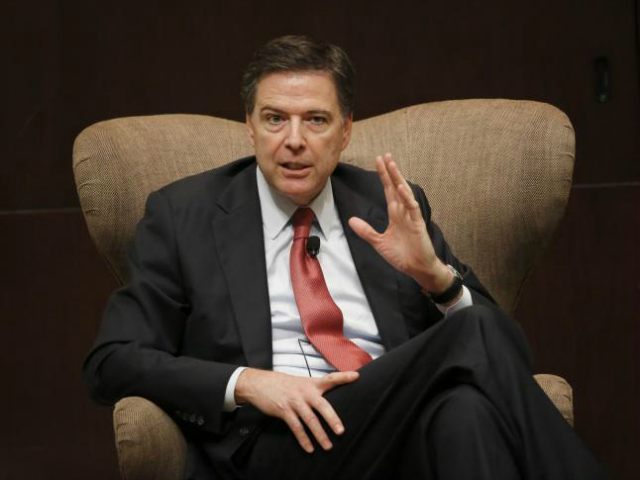A former senior federal prosecutor says FBI Director James Comey’s decision to recommend that Justice Department prosecutors not to pursue charges against Hillary Clinton regarding her handling of sensitive electronic correspondence flowed from Comey’s own inflated ego and view of his role in history.
Comey’s reputation inside the Department of Justice was that he was a very black-and-white thinker, which is why the FBI director’s July 5 recommendation to DOJ prosecutors not to prosecute Clinton was such a shock, says Joseph E. diGenova, who served as President Ronald W. Reagan’s U.S. attorney for the District of Columbia. During his four-year tenure, diGenova prosecuted Israeli spy Jonathan Pollard and many officials inside the administration of Washington’s Mayor Marion Barry.
“This is what I call ‘a legacy or epitaph decision,’ he was not going to be remembered as the person, who had stopped the first female nominee from a major party from running for president,” diGenova said. “It is as simple as that. He made a political position.”
The former prosecutor says he does not think Comey was pressured or threatened.
“He did it all on his own,” he said. “The guy has a God complex and he viewed himself as the ultimate arbiter for the good of the country, because he obviously despises Trump.”
“He is the sort of a guy, who likes to think he is on the side of the angels–and he’s been that way, since very early in life, when he was a kidnap victim himself,” he said.
The FBI director said in his statement about his recommendation:
Although there is evidence of potential violations of the statutes regarding the handling of classified information, our judgment is that no reasonable prosecutor would bring such a case. Prosecutors necessarily weigh a number of factors before bringing charges. There are obvious considerations, like the strength of the evidence, especially regarding intent. Responsible decisions also consider the context of a person’s actions, and how similar situations have been handled in the past.
DiGenova said he had a heads-up that Comey and the Department of Justice were not going to pursue charges against Clinton after sources told The Washington Post that the FBI found no evidence of criminal intent.
“Because it was being reported so authoritatively by The Post that Justice Department officials were say that, it seemed to me there was never going to be an indictment,” he said.
What he never expected was for an FBI director to lay out a clear case criminal law violations,” he said.
“Then, make the insane, ludicrous, appalling conclusion that no reasonable prosecutor would bring a case,” he said. “That is simply utter tripe–just nonsense. It was an absurd conclusion.”
The former federal prosecutor said he was not sure if Comey was acting in or out of character, because he wants to stay focused on Comey’s decision.
“It was pure cognitive dissonance. It was bizarre and I have concluded that he did it for one reason and one reason only: He thought that she had violated the law–I think he was quite angry about the facts–and then, he reached the opposite conclusion based on none of the evidence,” he said.
“It is quite obvious that what he did was make a political decision,” he said. Clinton the Democratic nominee for president is running the GOP nominee Donald J. Trump.
The Federal Bureau of Investigations operates inside the Department of Justice and its agents are often at the direction of U.S. attorneys, who run DOJ offices around the country. To buffer FBI directors from political pressures, the director’s term is for 10 years, so it overlapped presidential and congressional terms of office.

COMMENTS
Please let us know if you're having issues with commenting.